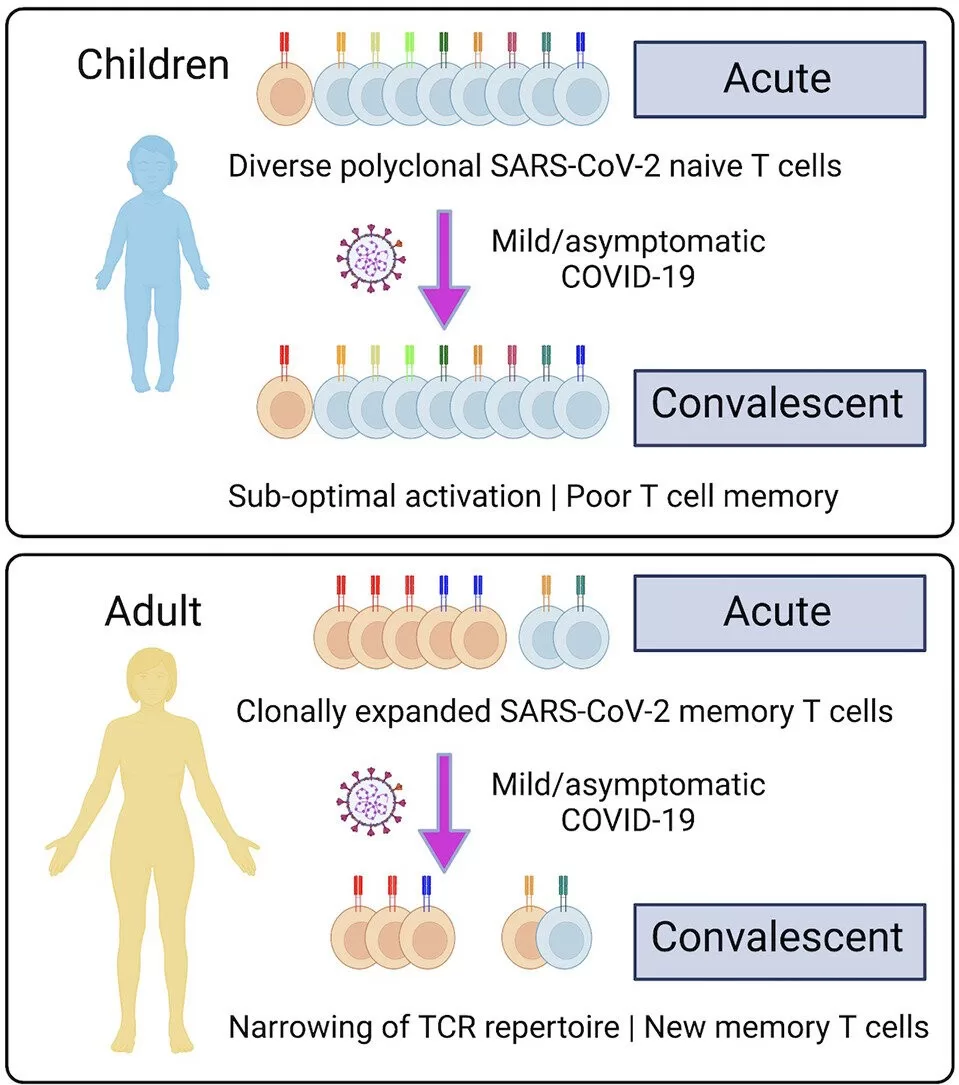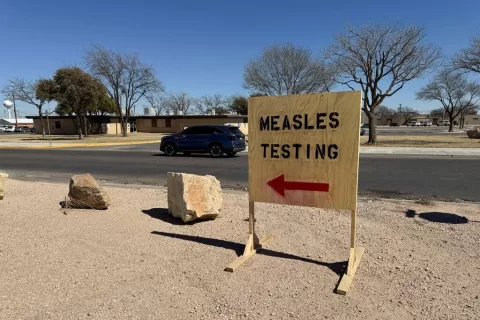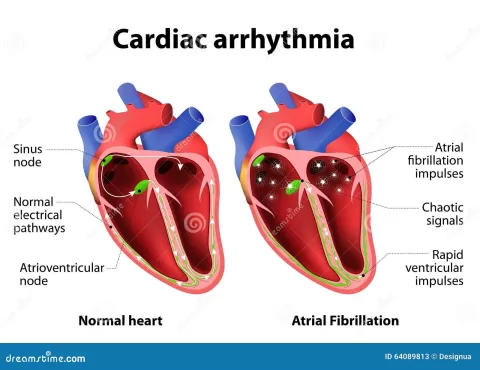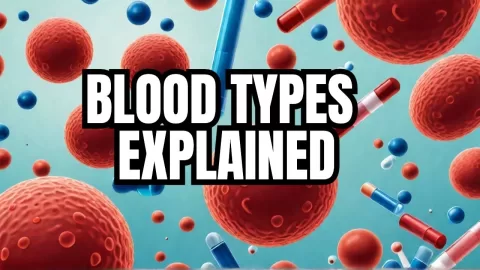Children’s immune response is a crucial area of research, particularly in understanding how young bodies react to febrile illnesses. Recent studies reveal vital insights into their immune cells’ behavior, specifically during fevers, allowing researchers to explore new avenues for targeted treatments. These febrile illnesses, which often stem from various infections, can severely challenge children’s health and lead to immune dysfunction. For instance, conditions like multi-system inflammatory syndrome in children (MIS-C) can complicate the situation further. With a clearer grasp of children’s immune response, healthcare professionals can improve diagnosis and treatment strategies for infections and related complications.
The exploration of pediatric immune defense mechanisms is essential for advancing healthcare solutions for young patients. As children face numerous health challenges from infections and inflammatory conditions, understanding how their bodies respond to fever becomes pivotal. By studying the dynamics of immunity in febrile episodes, especially in the context of immune dysfunction, researchers aim to identify tailored interventions. Severe infections can manifest in overlapping symptoms, making precise diagnosis a pressing need. This comprehensive approach seeks to enhance treatment options for conditions such as MIS-C and improve overall child health outcomes.
Understanding Children’s Immune Response During Febrile Illnesses
Recent research has shed light on the complex mechanisms of children’s immune response during episodes of febrile illnesses. These illnesses, characterized by high fever and often caused by diverse infections, trigger unique pathways in the immune system. By studying blood samples from over 100 children suffering from such conditions, researchers have identified distinct changes in immune cell behavior, particularly during severe infections. These insights are crucial, as they highlight how children’s immune systems react not only to infections but also to inflammatory diseases.
The implications of understanding these immune responses extend beyond mere academic knowledge. Knowing how immune cells react to different febrile conditions can lead to enhanced treatment protocols tailored specifically for children. This research, spearheaded by multiple prestigious institutions, aims to uncover how immune dysfunction manifests in various febrile illnesses and could ultimately pave the way for targeted therapies that improve children’s health outcomes.
The Link Between Immune Dysfunction and Febrile Illnesses in Children
Immune dysfunction plays a pivotal role in the severity of febrile illnesses in children. This dysfunction can compromise the body’s ability to combat infections, leading to prolonged illness or worse outcomes. Factors contributing to this dysfunction include the body’s inflammatory response to infections, which can vary significantly among pediatric patients. For instance, conditions like multi-system inflammatory syndrome in children (MIS-C) and severe bacterial infections often present overlapping symptoms yet arise from different immunological profiles.
A better grasp of immune dysfunction can inform medical professionals about the best protocols for diagnosing and treating febrile illnesses like MIS-C or severe bacterial infections. Understanding that both conditions can share common immunological traits allows for a more systematic approach in characterizing and treating these illnesses. This is particularly important given that febrile illnesses can escalate quickly and require rapid intervention to avoid serious complications.
Innovative Targeted Treatments for Children’s Febrile Illnesses
Recent findings highlight the necessity for innovative targeted treatments for children suffering from febrile illnesses, particularly as traditional methods may fall short. The diversity of febrile conditions—including serious bacterial infections, Kawasaki disease, and MIS-C—demands a more nuanced approach to treatment that considers each child’s unique immune response. Current therapies often lack the personalization required to effectively address the nuances of these infections, leading to suboptimal outcomes.
By focusing on the specific dysfunctions within immune responses and inflammatory markers, researchers are advocating for the development of tailored treatments that cater to individual immune profiles in pediatric patients. Such advancements could revolutionize pediatric care for febrile illnesses, minimizing complications and hospitalizations while promoting more effective recovery paths for children.
Mechanisms Behind Immune Dysfunction in Severe Infections
The mechanisms of immune dysfunction observed in children facing severe infections are multifaceted. Studies have shown that various types of immune cells, particularly neutrophils and T cells, exhibit dysfunctional behaviors during infections like MIS-C and severe bacterial infections. These impairments can result in the body’s decreased ability to respond to pathogens effectively, leading to prolonged febrile states and increased morbidity.
Understanding these mechanisms is key to developing treatments that not only address the symptoms but also correct the underlying immune dysfunction. By focusing on the unique characteristics of immune responses in pediatric patients with febrile illnesses, health care providers can create more effective therapeutic approaches that leverage the natural immune capabilities of children.
The Importance of Early Diagnosis in Pediatric Febrile Illnesses
Timely and accurate diagnosis of febrile illnesses in children is critical in managing their health effectively. Many times, children present with high fever and nonspecific symptoms, making it challenging for clinicians to identify the underlying cause quickly. The recent study emphasizes the importance of understanding specific immune responses, which could lead to the development of a rapid diagnostic tool capable of distinguishing between various febrile conditions.
With advancements in understanding immune responses, clinicians are better equipped to differentiate between severe bacterial infections, MIS-C, and other febrile illnesses. An improved diagnostic framework would not only facilitate faster treatment initiation but also enhance the overall management of children experiencing fevers, ultimately reducing the burden of these illnesses on healthcare systems.
Exploring Research on Febrile Illnesses and Immune Response
Research into febrile illnesses and the corresponding immune responses in children is gaining momentum, driven by recent findings from multidisciplinary teams across various institutions. The interplay of viruses and bacteria, especially amid the COVID-19 pandemic, has highlighted the urgent need for thorough investigation into how these pathogens affect children’s immune systems. By understanding these interactions, researchers aim to uncover key insights that could revolutionize treatment strategies for common febrile conditions.
Additionally, this ongoing research endeavors to unravel the complexities of immune dysfunction in febrile illnesses, illuminating how specific immune cells are altered during infection. This knowledge is vital for informing clinical decisions and improving outcomes for young patients facing infections that present with fever as a primary symptom.
Understanding Kawasaki Disease and Its Immune Response
Kawasaki disease, a serious inflammatory condition primarily affecting children, has garnered attention due to its link with immune dysfunction. The understanding of how the immune system reacts in cases of Kawasaki disease parallels that of more acute febrile reactions, which can be indicative of broader underlying issues related to the immune response. Recognizing the signs of Kawasaki disease early can be challenging, particularly given its febrile presentation.
Research indicates that children with Kawasaki disease exhibit distinct immune profiles that differ from those with other febrile illnesses. By identifying these characteristics, healthcare providers can improve diagnostic accuracy and tailor treatment options to address the specific immune dysregulation present in affected children. This approach is vital to managing the disease and preventing long-term complications resulting from delayed or inadequate treatment.
The Role of Interferons in Febrile Illness Responses
Interferons are a group of signaling proteins that play a crucial role in the immune response to viral infections. The recent analyses of blood samples from children with febrile illnesses have revealed reduced levels of these proteins, particularly in those affected by severe infections. The diminished interferon response can indicate an impaired ability to fight off viral pathogens, thus compounding the severity and duration of febrile episodes.
Enhancing the understanding of interferon signatures in febrile illnesses can open avenues for new therapeutic strategies aimed at bolstering immune responses. By developing treatments that can augment interferon signaling, researchers hope to empower the immune systems of affected children, making them more adept at overcoming infections that present with fever.
Insights into Multi-System Inflammatory Syndrome in Children (MIS-C)
Multi-System Inflammatory Syndrome in Children (MIS-C) represents a severe complication associated with COVID-19, and the understanding of its immune landscape is vital to improving pediatric care. Studies indicate that MIS-C manifests distinct immunological characteristics, including dysfunction in neutrophils and T cells. These findings emphasize the need for targeted examinations of how children’s immune systems respond to such complex infections, especially in the post-COVID era.
The research surrounding MIS-C illustrates how rapid shifts in immunological responses can culminate in severe outcomes. By examining the particular immune responses associated with MIS-C, researchers aim to develop more effective treatment strategies that address the condition’s specific challenges and promote faster recovery for affected children.
Frequently Asked Questions
What role does children’s immune response play in febrile illnesses?
Children’s immune response is critical in addressing febrile illnesses, characterized by high fever. In a recent study, researchers analyzed immune cell responses in children with various febrile conditions and found that a better understanding of these responses can lead to targeted treatments that improve diagnosis and management.
How does immune dysfunction affect children with severe infections?
Immune dysfunction can significantly impair children’s ability to fight severe infections. This dysfunction may lead to ineffective clearance of pathogens and can result in excessive inflammation, causing additional damage to the body. Recent insights into immune responses during febrile illnesses enhance our ability to address these issues effectively.
What is the relationship between MIS-C and children’s immune response?
Multi-system inflammatory syndrome in children (MIS-C) involves a distinct immune response that can impair the functioning of immune cells. Research indicates that MIS-C shares immunological characteristics with severe bacterial infections, revealing critical insights that could improve targeted treatments for affected children.
How can understanding children’s immune response help in diagnosing infections?
By studying children’s immune response to various infections, particularly during febrile illnesses, researchers aim to identify unique immune signatures that could facilitate quicker and more accurate diagnoses. This understanding might allow for the development of blood tests that can rapidly determine the underlying cause of fever in children.
What are the implications of impaired immune response in children with febrile illnesses?
Impaired immune response in children suffering from febrile illnesses could lead to serious complications, as observed in conditions like MIS-C and severe bacterial infections. Insights gained from these immune dysfunctions drive the push towards more individualized and effective treatments, ultimately improving health outcomes for children.
What advances are being made in targeted treatments for children’s immune dysfunction?
Recent studies emphasize the need for targeted treatments for children’s immune dysfunction, particularly during severe febrile illnesses. By closely examining immune cells’ responses and identifying specific biomarkers, researchers aim to develop therapies that are tailored to individual children’s needs, enhancing their recovery and reducing the risks of severe complications.
| Key Points | Details |
|---|---|
| Children’s Immune Response | The study explores how children’s immune cells respond during febrile illnesses, which can be critical in improving treatment. |
| Febrile Illnesses studied | The research focused on conditions like MIS-C, severe bacterial infections, severe viral infections, and Kawasaki disease. |
| Study Significance | Understanding immune dysfunction helps in diagnosing and treating these conditions better, especially when symptoms overlap. |
| Key Findings | Children with MIS-C and severe bacterial infections showed impaired functioning of certain immune cells and lower levels of interferons. |
| Future Prospects | The research aims to develop targeted therapies and potentially a simple blood test for rapid diagnosis of febrile illnesses in children. |
Summary
Children’s immune response is crucial in fighting off infections, especially during febrile illnesses. Recent research reveals that understanding how children’s immune systems react during fever can lead to much-needed advancements in medical treatments. By studying various severe infections, scientists hope to identify distinct immune mechanisms, allowing for quicker diagnoses and more effective therapies tailored specifically to children’s needs. This progress could transform care for young patients suffering from fevers and ensure their health and well-being.
The content provided on this blog (e.g., symptom descriptions, health tips, or general advice) is for informational purposes only and is not a substitute for professional medical advice, diagnosis, or treatment. Always seek the guidance of your physician or other qualified healthcare provider with any questions you may have regarding a medical condition. Never disregard professional medical advice or delay seeking it because of something you have read on this website. If you believe you may have a medical emergency, call your doctor or emergency services immediately. Reliance on any information provided by this blog is solely at your own risk.








